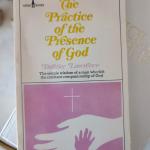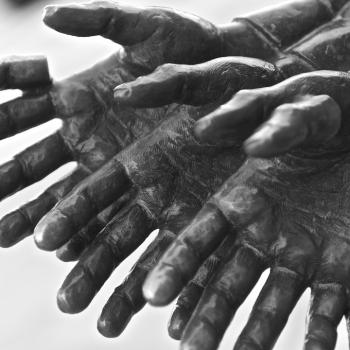There are times when we look for the presence of God without finding it. Tragedy strikes; prayers go seemingly unanswered. If you’ve ever had a crisis of faith, you know what it’s like to be in the midst of suffering while feeling like God simply isn’t there.
Doubt is a fact of human existence that we all experience. And we’re in good company when we doubt. Job lamented the heavy losses he suffered despite his righteousness. Psalm 74 expresses the Psalmist’s hopelessness: “O God, why have you rejected us forever?”
Yet sometimes when we fail to see God’s presence in our lives, it’s because we aren’t looking in the right places. The Biblical stories of Ruth and Esther teach us how to find God’s movement in more subtle ways.
Ruth’s Quiet God
In most of the Bible, God’s activity is explicit and unmistakable. An angel rescues Daniel from the lion’s den. Jesus restores a blind man’s sight using supernatural means. Yet we also find examples of God’s work done through human hands.
Ruth tells the story of two women’s resiliency against intense odds. After leaving Israel for Moab because of a famine, Naomi loses her entire family save for her stepdaughters, Ruth and Orpah. She decides to return to Israel and tells them to go back to their old families in Moab. Orpah agrees, but Ruth refuses to leave.
But Ruth replied, “Don’t urge me to leave you or to turn back from you. Where you go I will go, and where you stay I will stay. Your people will be my people and your God my God. Where you die I will die, and there I will be buried. May the LORD deal with me, be it ever so severely, if even death separates you and me.” When Naomi realized that Ruth was determined to go with her, she stopped urging her. – Ruth 1:16-18
Ruth’s abiding devotion is even more profound considering the context of the ancient world, where unmarried or widowed women had no rights and were nearly guaranteed to live destitute – especially an older woman like Naomi. Remember that Ruth is from Moab, one of Israel’s enemies during that time.
Despite the danger, she stays and meets a man named Boaz who shows her kindness. Struck by her devotion, Boaz marries Ruth – a critical source of protection in this highly patriarchal society. Ruth shows us how found family can be a tie even stronger than blood.
God doesn’t perform any miracles here, but is seen through Ruth’s steadfast love and in Boaz’s open heart toward someone he’s likely been conditioned to loathe. Ruth the Moabite is one of the ancestors of Jesus listed in Matthew – a sign telling us these values are God’s values.
God Behind the Scenes
The Book of Esther has the distinction of being the only Bible story that doesn’t mention God by name.1 Esther’s story takes place in the Persian Empire after the Exile. Jews are an oppressed minority, scattered throughout this foreign land without any political or social rights. King Xerxes seeks a new wife and Esther, an orphaned woman who hides her faith to protect herself, wins his favor.
Haman, the king’s vizier, is stung by Esther’s uncle Mordecai refusing to worship him. He devises a plan to kill all the Jews of the Persian Empire and gets the king’s approval. Esther resolves to petition Xerxes’ mercy, even though the penalty for an uninvited visit is death.
When she’s granted an audience, Esther cleverly declines to make her petition directly – better to leave him hanging. At a state banquet, she reveals her Jewish identity, pleads for her people, and calls out Haman as the one who would do her harm. Xerxes spares Esther’s people and has Haman executed on the same gallows he built to kill Mordecai. The holiday of Purim commemorates this.
God is everywhere in Esther’s story, despite going unspoken. God is moving within Esther’s courage in the face of death. It cannot be overstated how terrifying her situation must have been, the startling realization that the only way to save her people was to stand up to the most powerful ruler in the known world. The Persian king was titled King of Kings to emphasize his power, yet Esther leveraged her political connections (and risked her life) to do the right thing. She could have simply done nothing and left Mordecai and the Jews to their fate – after all, no one knew she was Jewish. But in her weakness, given her position as a woman and a minority, she enacted a plan to avert disaster. God is moving there too, using human weaknesses to work toward righteous outcomes.
Why This Matters
Like Ruth, Boaz and Esther, we are all called to do our God’s work in the world. Sometimes that means going out of our way to address a problem distant from us – something which we could ignore, but choose to act on instead. Often though, we don’t need to look far to find openings to do the work of reconciliation and healing. Those opportunities are right in front of us, inviting us to act. As Teresa of Avila said, “Christ has no body now but yours.”
Notes
1. With the exception of the Song of Solomon, a romantically charged long form poem.












